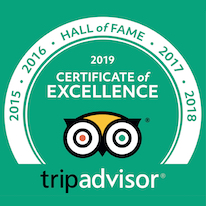- The Tea and Horse Trail – Reviving the Tea Road to Tibet
- Saturday June 9
- 3-5pm
- Cost: 100 RMB, 50 RMB for members – to sign up, click here.
Join The Hutong and special guest, scholar-explorer Dr. Ed Jocelyn, for an afternoon introducing Yunnan Province’s legendary Tea and Horse Trail. For more than 1,000 years, mule caravans carried trade between the tea producing areas of southwest China and Tibet via a vast network of mountain trails. The caravans vanished with the coming of modern transportation, but many of the ancient roads remain intact.
Since 2007, Jocelyn has ranged across this exotic region in a mule-powered bid to create a “Chinese version of the Appalachian Trail.” His vision is to construct a “new” caravan route between the tea plantations and Tibet: a route that could serve as a fresh, sustainable model for independent hiking and tourism in China.
As well as introducing his Tea Trail fieldwork, Jocelyn will discuss the ethnography of the Tea and Horse Trail in Yunnan and share some of the distinctive teas and drinking cultures of the many peoples who live along the route:
The Bulang are considered by some to be the original tea drinkers. By tradition, they are the earliest inhabitants of southwest Yunnan.
The Hani are perhaps the best known of the peoples at the head of the Tea Trail. Hani families have been farming the ancient tea groves of Nannuoshan for many hundreds of years.
As the Tea Trail winds its way north towards Dali, it passes through country dominated by The Yi people, whose ancestors created the Nanzhao empire in the 8th century and were, perhaps, the first to trade Yunnan tea with the Tibetans.
The great crossroads of the Tea and Horse Trail was Dali, capital of The Bai empire of the 10th-13th centuries.
North of Dali was the fabled Naxi town of Lijiang, where caravans from the south traded directly with Tibetans, who had trekked three months or more from Lhasa.
The last major stop before the Tibetan interior was the border town of Zhongdian, now better known as Shangri-la. Here, tea is brewed strong and then blended with yak butter.
Best known for his epic field research on the legendary Long March, Jocelyn discusses life as a latter-day muleteer, and the challenges of traveling “old-style” through modern China.


















